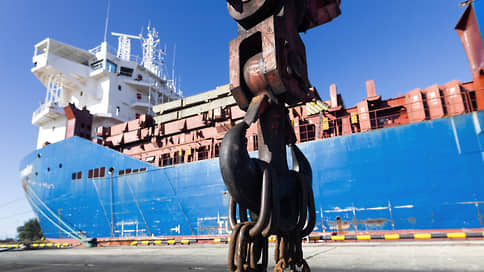World logistics gets rid of overloads – Kommersant
[ad_1]

The main delays in international logistics are associated with bottlenecks in the infrastructure of ports, airports and other logistics hubs, and not with transportation processes, according to a World Bank report, timed to coincide with the release of the Logistics Performance Index. So, in the summer of 2022, 12% of all containers were on ships awaiting unloading in ports. The WB notes that investments in infrastructure, speeding up customs procedures and the introduction of new cargo tracking technologies can increase the speed of cargo delivery.
On average, the time of cargo delay in ports is from three to nine days, most of all cargo is idle in the ports of the Middle East and Africa. The average delay time, judging by the data collected in May-September 2022, was three days in Singapore and India, seven in the USA, and ten in Germany (the WB does not provide estimates for Russia). The average delivery time by sea was 44 days with a standard deviation of 10.5 days, but only 60% of this time was for transportation, the rest was for loading, unloading and transshipment (container shipping by sea, as the cheapest shipping method, accounts for half of value, for air freight – 35%, here delays are on average three times shorter). On the export side, delays are primarily related to the quality of logistics (the container must arrive at the port in advance), while import restrictions are more often associated with customs and currency control.
The main problems in logistics that arose during the pandemic have already been resolved: the “pressure” index on supply chains peaked at the end of 2021 (then it was 4.3 standard deviations from the historical average), by March 2022 it fell to 2, 8 rose temporarily in April amid new restrictions on trade with Russia and lockdowns in China, before falling to “almost normal” levels (0.9) by September. As a result, freight rates returned to pre-pandemic levels (see chart).
Nevertheless, the sanctions have affected the growth of delays in northern European ports (due to restrictions on the activities of Russian shipowners). In turn, the withdrawal of large Western logistics companies from the Russian market, coupled with sanctions against Russian Railways, led to the reorientation of transit rail transportation of goods from China to Europe to sea deliveries.
[ad_2]
Source link






